
Upcoming Events
REIMAGINING RETIREMENT 2030: A ROADMAP FOR ACTION
Speakers

Keith Ambachtsheer
President, KPA Advisory Services
Keith Ambachtsheer has been a participant in the pensions and investments industry since 1969. He is recognized as one of the globe’s most original thinkers on pension design, governance, and investing issues. Since its founding in 1985, KPA Advisory Services has become known as a trusted incubator for new thinking in pensions, and for providing strategic advice to a global clientele in person, and through the monthly Ambachtsheer Letter. CEM Benchmarking Inc., co-founded by Keith in 1991, has earned a reputation as the premier benchmarking organization in the global pensions and investments industry.
Keith was named “One of the Most Influential People in Pensions” by Pensions & Investments and has received many honors and awards over the course of his professional career. He has also played major roles in shaping and reshaping country retirement income systems, including those of Australia, Canada, Finland, Ireland, and the Netherlands.
Recently, aiCIO named Keith one of the globe’s “10 Most Influential Academics in Institutional Investing,” and he has helped guide the discourse in the field through a variety of academic positions, including as Founding Academic Director, Rotman-ICPM Board Effectiveness Program for Pension and Other Long Horizon Investment Institutions, and as Senior Fellow, National institute on Aging, Ryerson University.
He has personal governance experience as a member of several corporate and not-for-profit boards and has served as Board Chair of the Princess Margaret Cancer Foundation. He is a member of the Mercer CFA Institute Global Pension Index Advisory Council, the Georgetown University Center for Retirement Initiatives Scholars Council, the Network for Sustainable Financial Markets, and the Tobacco Free Portfolios Global Advisory Council.

Karen Andres
Director, Policy and Market Solutions, Aspen Institute
As the Director of Policy and Market Solutions and Project Director of the Retirement Savings Initiative at the Aspen Institute Financial Security Program, Karen works to advance promising solutions to American families’ most pressing financial security challenges. Working across sectors and disciplines, Karen and the Policy and Market Solutions team seek to highlight market and policy gaps, jumpstart creative solutions, and build a diverse set of leaders who can turn ideas into action.
Before coming to the Aspen Institute, Karen spent over 10 years at the Financial Health Network (formerly the Center for Financial Services Innovation), where she built the Long-Term Savings and Retirement Practice. Previously, Karen led the development of the Financial Health Network itself. She began her career in the retirement industry as a bilingual 401(k) plan educator for both Strong Funds and Wells Fargo Institutional Trust Services.
Karen holds M.B.A. and M.P.P. degrees from the University of Michigan. She also holds a B.A. in Spanish and Art History, with a minor in Mathematics, from Indiana University. She lives in Ann Arbor, Michigan, with her husband, Matt, and two young sons.

Pablo Antolin
Principal Economist and Deputy Head of the Insurance, Pensions, and Financial Markets Division, OECD
Pablo Antolin is Principal Economist, Head of the Private Pensions Unit, and Deputy Head of the OECD Insurance, Private Pension and Financial Markets Division. He manages the research and policy program of the Working Party on Private Pensions (http://www.oecd.org/daf/fin/private-pensions/), a body that brings together policymakers, regulators and the private sector of almost 40 countries around the world. His work covers issues related to the operation and regulation of funded retirement income systems.
His current work at the WPPP focuses on the best international practices to design, introduce, and strengthen complementary funded retirement savings schemes to improve people’s retirement well-being as well as collecting and disseminating standardized pension fund statistics; and the OECD Core Principles of Private Pension Regulation. Currently, he also studies the impact of COVID-19 on retirement savings, learning on different policies implemented, and providing policy guidelines.
In the past, he worked on the impact of aging populations on the economy and on public finances. He has produced several studies examining options available to reform pension systems in several OECD countries, including public pensions. Previously, he worked at the IMF and at the OECD Economic Department. He has published journal articles on aging issues as well as labor market issues.
Mr. Antolín holds a Ph.D.in Economics from the University of Oxford and an undergraduate degree in Economics from the University of Alicante (Spain).

Angela M. Antonelli
Research Professor and Executive Director, Center for Retirement Initiatives (CRI), Georgetown University’s McCourt School of Public Policy
Angela Antonelli is a Research Professor and the Executive Director of the Center for Retirement Initiatives (CRI) at Georgetown University’s McCourt School of Public Policy. She created the Center in the summer of 2014 with a mission to strengthen retirement security, including the adoption of state-facilitated retirement savings programs.
Angela works closely with states and stakeholders interested in addressing the private sector workforce retirement coverage gap and has advised several state task forces. She is relied upon for her insights and opinions on issues related to retirement security and savings, including options for plan design and related legal and regulatory considerations. She appears in The Wall Street Journal, The New York Times, Pensions & Investments, MarketWatch, forbes.com, and many other major news outlets. She also serves as a member of the World Economic Forum’s Retirement Investment Systems Reform Project and is a Fellow of the National Academy of Public Administration.
Prior to assuming her position at Georgetown University, the Honorable Angela Antonelli served in senior positions in the government, consulting and nonprofit sectors, including the White House Office of Management and Budget (OMB) and as the Assistant Secretary & CFO for the U.S. Department of Housing and Urban Development, with responsibilities for a $30 billion budget and implementing a range of economic policies and programs. She has a B.A., summa cum laude, from Cornell University and an M.P.A. with honors from Princeton University.

Mariel Beasley
Principal, Center for Advanced Hindsight, Duke University and Co-Founder, Common Cents Lab
Mariel Beasley is a Principal at the Center for Advanced Hindsight at Duke University and Co-Founder of the Common Cents Lab, a subcenter committed to improving the financial behavior of low- to moderate-income households in the United States.
Working directly with credit unions, non-profits, and local governments, Mariel incorporates findings from the behavioral sciences to help members, clients, and residents lead happier, healthier, and wealthier lives. Mariel and her team use quantitative methods to design and rigorously test ideas in the field, exploring what is needed, what works, and how to move forward. To date, innovations from the Common Cents Lab have measurably improved the financial lives of over half a million people in the United States. Mariel also teaches a master’s-level course in Behavioral Science for Municipal Policy at Duke University.

Michael W. Frerichs
Treasurer, State of Illinois
Michael W. Frerichs was first elected Illinois State Treasurer on November 4, 2014 and re-elected on November 6, 2018. In Illinois, the Treasurer’s office predates the state’s incorporation in 1818. In 1848, voters chose to make it an elected office. Frerichs is the 74th person to serve in this role.
In Illinois, the Treasurer is the state’s Chief Investment and Banking Officer. The office invests money on behalf of the state and local units of government. Frerichs also believes in providing individuals with tools so they can invest in themselves. He does this by encouraging savings plans for college and trade school, increasing financial education among all ages, removing barriers to a secure retirement, and reuniting Illinois residents with their unclaimed property.
The Treasurer’s Office actively manages approximately $31 billion. The investment approach is cautious to ensure the preservation of principal. The investment returns are significant: For every $1 spent to run the office, Frerichs nets $42 for the state’s residents.
Since taking office, Treasurer Frerichs has made significant strides in the fight for consumers by making sure Illinois residents get what is owed to them through the Unclaimed Property Program. A record-breaking $180 million in forgotten cash and stock was returned to individuals, employers, and nonprofits in Fiscal Year 2018. By making changes to the Bright Start and Bright Directions College Savings Programs, Frerichs has lowered fees and provided more investment options, making college more affordable for families saving for their children’s futures.
Under Treasurer Frerichs’ leadership, Illinois now leads a multi-state alliance that allows parents of children with blindness or another disability to save for their children without jeopardizing their federal disability benefits. Achieving a Better Life Experience Program (ABLE) is the national standard, offering high-quality and low-cost investment options.
In November 2018, Treasurer Frerichs launched Secure Choice, a retirement savings program that will benefit 1.2 million private sector workers in Illinois who do not have access to employer-sponsored retirement plans.
In 2006, Treasurer Frerichs was elected an Illinois State Senator, representing east-central Illinois. As chair of the Higher Education Committee, he championed efforts to make college more affordable. He also served as chair of the Agriculture and Conservation Committee and became a Certified Public Finance Officer.
Frerichs currently serves on the Executive Committee of the National Association of State Treasurers; National Association of State Auditors, Comptrollers, and Treasurers; College Savings Plan Network; National Association of Unclaimed Property Administrators; and as a trustee on the Illinois State Board of Investment.
A graduate of Yale University, Treasurer Frerichs resides in Champaign with his young daughter, Ella.

Richard Fullmer
Founder, Nuova Longevità Research
Richard K. Fullmer, CFA, is founder of Nuova Longevità Research, a global pension research and consultancy firm principally located in Maryland. Mr. Fullmer has over 25 years of investment experience. Prior to his current role, he held senior portfolio strategy roles at T. Rowe Price and at Russell Investments, where he specialized in retirement plans, endowments and foundations, and other asset allocation and liability-driven investment problems.
Mr. Fullmer has written extensively on topics pertaining to longevity and sustainability risk, tontine finance and mortality-pooled investment design, portfolio strategy, spending strategy, and insurance strategy. His publications include Tontines: A Practitioner’s Guide to Mortality-Pooled Investments (CFA Institute Research Foundation Briefs, July 2019); Individual Tontine Accounts, 19(8) Journal of Accounting and Finance (Dec. 2019); A Framework for Portfolio Decumulation, 10(1) Journal of Investment Consulting (Summer 2009); and Defaulting Retirement Distributions Out of Defined-Contribution Plans, 3(3) Journal of Retirement (Winter 2016).
Mr. Fullmer is a recipient of the Edward D. Baker III Journal Research Award from the Investments and Wealth Institute, a member of the Advisory Board of the Journal of Retirement, and has served as a senior partner to the Wharton Pension Research Council at the University of Pennsylvania. He earned a M.Sc. degree from Boston University in 2006.

Amish Gandhi
Principal, Mercer
Amish is a Principal for Mercer’s Wealth business. Located in New York, he is responsible for assisting institutional clients with retirement plans on the full range of investment issues, including investment strategy, portfolio construction, manager selection, and performance monitoring. Amish also contributes to and leads a research team that evaluates manager-of-manager investment strategies.
During 2018/19 Amish was seconded to the World Economic Forum, where he collaborated on a retirement investment systems reform project, organized global events, and produced original research on global retirement and investment issues.
Amish joined Mercer in 2008 in the Birmingham, U.K., office and transferred to the New York office in 2014. Amish holds a B.Sc. degree in Economics from the University of Warwick and is a CFA and CAIA charter holder.

Kara Getz
Chief Counsel, U.S. House of Representatives Committee on Ways and Means, U.S. Representative Richard Neal (D-MA)
Kara Getz is Counselor to the Chairman for Ways & Means Chairman Richard E. Neal. Before joining Ways & Means, Kara was Senior Tax Counsel for the Senate Finance Committee and Tax Counsel and Legislative Director for Congressman Neal.
Kara also was Chief Counsel for the Senate Special Committee on Aging and Tax Counsel for Senator Gordon Smith. Her private sector experience includes Director of Congressional Affairs for ASPPA and Senior Manager in the National Compensation and Benefits Group of Ernst & Young LLP’s Human Capital practice.

Stefano Giglio
Professor of Finance, Yale University’s School of Management
Stefano Giglio is a Professor of Finance at the Yale School of Management. His research interests span several topics, including asset pricing, macroeconomics, and climate change, with a particular focus on volatility and uncertainty risk. He has been awarded several prizes, including the AQR Insight Award and the Fama-DFA Prize for the Best Paper in the Journal of Financial Economics, and he is an Editor at the Review of Financial Studies. His work has been featured in several news outlets, including The Economist and The New York Times.

Chris Hanak
Senior Investment Officer, Risk Management and Asset Allocation, Washington State Investment Board
Christopher Hanak is the Senior Investment Officer responsible for the Risk Management and Asset Allocation group at the Washington State Investment Board. Before joining WSIB in 2019, he was Acting Chief Investment Officer for the Group Health Foundation, which was funded with proceeds from the sale of Group Health Cooperative to Kaiser Permanente in early 2017. Prior to joining GHF, he was a senior member of the investment team at BMGI, the investment entity for Bill and Melinda Gates. While there, he performed in a variety of roles including commercial real estate development, internal private equity, internal portfolio management, external manager oversight, and head of trading. He was BMGI’s liaison to the Bill and Melinda Gates Foundation and a member of the Gates Millennium Scholar investment advisory committee. He was a founding member of M. Sternburg and Co., an institutional fixed income brokerage, and started his career as an investment analyst at Atlantic Richfield. He is a graduate of the University of Pennsylvania and received his M.B.A. from The University of Chicago.
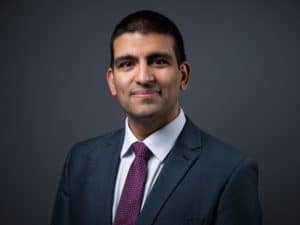
Vishal Hindocha
Director, Investment Solutions Group
Vishal Hindocha, CFA, is a Director in the Investment Solutions Group of MFS Investment Management® (MFS®). In this role, he works with clients to develop solutions and provide insights on global investment trends and best practices. His responsibilities include conducting proprietary research and helping present the firm’s investment insights to clients around the world, with a focus on sustainable investing and stewardship.
Vishal joined MFS in 2016 as a Director on the Client Relations and Consultant Relations teams. He previously served as a Senior Investment Consultant and Team Leader at Willis Towers Watson.
Vishal earned a Bachelor of Science degree in economics from the University College London. He holds the CFA UK Society Certificate in ESG Investing and is a member of the UK’s Enterprise Advisor Network.

Lauren Hoeck
Senior Consulting Actuary, Willis Towers Watson
Lauren is an actuary who consults with clients on a broad range of complex defined benefit and defined contribution plan issues, including plan design and effectiveness, risk management and contribution strategies. Lauren is a financial well-being and retirement readiness subject matter expert, consulting with a diverse range of clients on trends, measurement techniques, and solutions. In addition to her consulting role, Lauren leads the Washington, D.C., Out@WTW Inclusion Network, which promotes inclusion and diversity through trainings, social events, and client events. Lauren earned a B.S. degree in Mathematics from the University of Notre Dame. She is a Fellow of the Society of Actuaries and an enrolled actuary under ERISA.
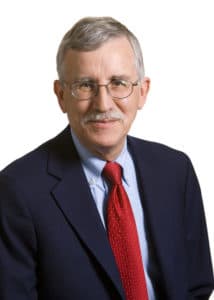
David C. John
Senior Strategic Policy Advisor, AARP Public Policy Institute, and Deputy Director, Retirement Security Project, Brookings Institution
David C. John is a Senior Strategic Policy Advisor at the AARP Public Policy Institute (PPI), AARP’s internal think tank, where he focuses on pension and retirement savings issues. He also serves as Deputy Director of the Retirement Security Project (RSP) at the Brookings Institution. RSP focuses on improving retirement savings in the United States, especially among moderate- and low-income workers. Before joining AARP, David was a Senior Research Fellow at the Heritage Foundation for over 14 years.
David has written and lectured extensively about reforming the nation’s retirement programs. He is a co-author of a proposal to include trial annuities as a default withdrawal choice in 401(k)-type plans and, with J. Mark Iwry, co-author of the Automatic IRA, a small business retirement savings program for firms that do not sponsor any other form of retirement savings or pension plan that is a model for plans now being implemented by several states.
David is also the co-author of a study of national retirement savings plans in the United Kingdom and other countries, along with a number of other papers, including how to structure state-sponsored plans for small businesses and how to structure rainy day emergency savings accounts.

Doug Kincaid
Managing Director, Financial Services, Greenwald Research
Doug Kincaid is the Managing Director of Financial Services for Greenwald Research, a leading independent custom research firm and consulting partner to the health and wealth industries. Doug’s work focuses on retirement savings and retirement income studies for many of the nation’s top financial services companies and trade associations. He also manages two of Greenwald’s Syndicated Studies, the Retiree Insights Program and the Guaranteed Lifetime Income Study. Doug has an M.A. in Sociology from Indiana University and a B.A. in Sociology from the University of North Carolina at Chapel Hill.
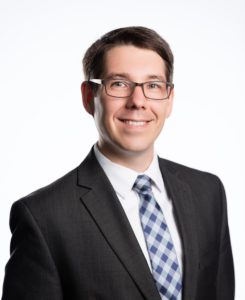
Michael Kreps
Principal, Groom Law Group
Michael Kreps specializes in issues relating to public policy, fiduciary responsibility, and plan funding and restructuring. He routinely represents both private and public sector clients before federal agencies and Congress.
Previously, Michael served as the Senior Pensions and Employment Counsel for the U.S. Senate Committee on Health, Education, Labor, and Pensions from the 110th through the 114th Congresses. He managed all aspects of the Committee’s retirement agenda and had primary staff responsibility for pension legislation, including the pension investment provisions of the Dodd-Frank Wall Street Reform and Consumer Protection Act, funding stabilization and Pension Benefit Guaranty Corporation reform provisions of the MAP-21 Act of 2012, Pension Relief Act of 2010, and CSEC Pension Flexibility Act. He also led the Committee’s oversight of regulatory activities involving employee benefit plans.

Michael Mendelson
Principal, AQR Capital Management
Michael Mendelson is a Principal, Portfolio Manager and Member of the Executive Committee at AQR Capital Management. Michael has managed both equity and macro strategies and has been active in developing AQR’s investment infrastructure, organizing its early risk management efforts, overseeing portfolio financing and leading the effort to better serve the senior leaders of AQR’s strategic clients. Prior to AQR, Michael was the founder of the quantitative trading group at Goldman Sachs & Co. Michael participates in public policy issues and has served as a member of the Managed Funds Association’s board of directors and Chairman of its Trading and Markets Committee and its Government Affairs Committee. Michael earned an S.B. in mathematics, an S.B. in management, an S.B. in chemical engineering and an S.M. in chemical engineering, all from the Massachusetts Institute of Technology, and an M.B.A. from the University of California at Los Angeles.

Charles E.F. Millard
Former Director, Pension Benefit Guaranty Corporation (PBGC)
Charles E.F. Millard is the former Director of the Pension Benefit Guaranty Corporation. He currently advises a limited number of companies on pension and retirement issues and writes frequently about those topics. He has been an Investment Banker with Lehman Brothers and Prudential Securities, and was Head of Pension Relations at Citigroup.
Charles was elected to the New York City Council twice and served as President of the New York City Economic Development Corporation, where he played an active role in the redevelopment of 42nd Street and Times Square.

David Newville
Vice President, Policy and Research, Prosperity Now
David Newville is Vice President of Policy & Research at Prosperity Now, a national intermediary dedicated to building stability, wealth and prosperity in the United States. David manages across disciplines and silos to create policy proposals and advocacy campaigns that can make real change in the lives of low-income households. Under his leadership, Prosperity Now was instrumental in introducing federal legislation around Baby Bonds, emergency savings for low- and moderate-income families when filing their taxes and through their employers in the workplace, and ensuring that the Volunteer Income Tax Assistance program, a federal program that puts $1.8B back into the pockets of low-income Americans at tax time, was made permanent after nearly 50 years. David also co-created the model by which Prosperity Now coaches state and local coalitions and advocates to advance racial wealth equity. Finally, David provides oversight of the Prosperity Now Scorecard, a comprehensive resource for data on household financial health and racial economic inequality.
Prior to joining Prosperity Now, David served as a Senior Policy Advisor in the U.S. Department of the Treasury’s Office of Consumer Policy during the Obama administration. There, he created and led an interagency group of federal regulators to ensure coordinated response to the development of emerging payments products and services in the financial services marketplace and supported the development and implementation of the myRA program. Before that, David worked with the Financial Health Network, where he developed consumer protection recommendations for prepaid cards, many of which were then adopted by the CFPB, and advised on financial services policies such as prepaid debit cards, nonbank financial regulation, small-dollar credit and financial access barriers. He also worked on improving tax, savings, and financial services policies for low- and moderate-income individuals at New America.
David has authored a number of policy recommendations and has advised members of Congress on ways to build racial wealth equity into their proposals. His commentary has appeared in CNN.com, The Washington Post, USA Today, and American Banker.

Beth Pearce
Treasurer, State of Vermont
Beth Pearce serves as Treasurer for the State of Vermont, where she was elected to a fifth term in office in November 2018. She served her first term upon appointment to the position of Vermont State Treasurer by Governor Peter Shumlin in January 2011. Previous to assuming the role of State Treasurer, she served for more than seven years as Vermont’s Deputy Treasurer.
Treasurer Pearce has over 40 years of experience in government finance at both the state and local levels. She continues her advocacy for conservative and affordable debt practices, prudent management of the pension systems, and responsible use of reserves.
Treasurer Pearce is the past President of the National Association of State Treasurers (NAST); the National Association of State Auditors, Comptrollers and Treasurers (NASACT); and the National Association of Unclaimed Property Administrators (NAUPA).
Prior to joining the Vermont State Treasurer’s Office, Pearce served as Deputy Treasurer for Cash Management at the Massachusetts State Treasurer’s Office from 1999–2003; Deputy Comptroller for the Town of Greenburgh, New York; and Accounting Manager and Financial Operations Manager for the Town of West Hartford, Connecticut. In addition, she has served as a Fiscal Officer with the Massachusetts Department of Social Services and as a Project Director for the Massachusetts Executive Office of Human Services.
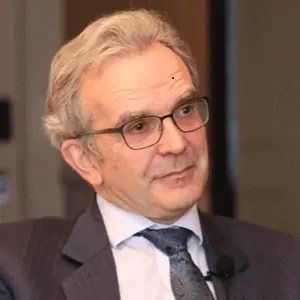
David Pitt-Watson
Co-Founder & Former CEO, Hermes Focus Funds and Equity Ownership Service
David Pitt-Watson is a leading thinker and practitioner in the field of responsible investment and purposeful finance.
Over the past 10 years, he led the RSA’s Tomorrow’s Investor program. It has been successful in changing laws and regulation to allow collective pensions in the U.K., and to limit and promote transparency on the charges fund managers were levying on customers.
Until 2012, David was co-founder and former CEO of Hermes Focus Funds and Equity Ownership Service, which became the largest responsible investment group of any institutional fund manager in the world.
A graduate of Oxford and Stanford universities, he is a Visiting Fellow at Cambridge University, where he teaches a course on “The Purpose of Finance.” His books have been translated into five languages.
He currently advises Sarasin fund managers and is advisory chair of Ownership Capital.

James Poterba
Professor of Economics, MIT, and President & CEO, National Bureau of Economic Research
James Poterba is the Mitsui Professor of Economics at MIT and the President and Chief Executive Officer of the National Bureau of Economic Research, a non-profit research organization with nearly 1,600 affiliated economists. He has served as President of the Eastern Economic Association and the National Tax Association, and as Vice President of the American Economic Association. He is a member of the National Academy of Sciences and a Fellow of the British Academy.
Dr. Poterba’s research focuses on how taxation affects the economic decisions of households and firms, particularly those involving saving and portfolio behavior. His recent research has analyzed the determinants of retirement saving, the draw-down of assets after households reach retirement, and the role of tax-deferred retirement saving programs such as 401(k) plans in contributing to retirement security.
Dr. Poterba is a trustee of the College Retirement Equity Fund (CREF), the TIAA-CREF mutual funds, and of the Alfred P. Sloan Foundation. He holds an undergraduate degree from Harvard College and a D. Phil. in Economics from Oxford University, where he was a Marshall Scholar.

David Pratt
Professor of Law, Albany Law School
David Pratt is the Jay and Ruth Caplan Distinguished Professor of Law at Albany Law School. He received his law degree from Oxford. Since 1976, he has specialized in retirement plans and other employee benefit programs. He is the author of the Social Security and Medicare Answer Book and the co-author of Pension and Employee Benefit Law (with John Langbein, Susan Stabile and Andrew Stumpff), ERISA and Employee Benefit Law: The Essentials (with Sharon Reese) and Taxation of Distributions from Qualified Plans (with Dianne Bennett and others). He has also written numerous articles and is a frequent lecturer. He is the Chair of the Life Insurance and Employee Benefits Committee of the Trusts and Estates Law Section of the New York State Bar Association and a fellow of the American College of Employee Benefits Counsel.

Catherine Reilly
Director of Retirement Solutions, Smart USA
Catherine Reilly has over 20 years’ experience working in the asset management and retirement industry in Europe and North America, in roles that cover economic and investment research, product design, and business strategy. She is currently Director of Retirement Solutions at Smart, a leading retirement technology business and one of the world’s largest recordkeepers, where she focuses on public policy, thought leadership, and strategy.
Most recently, Catherine was Global Head of Research for the Defined Contribution team at State Street, where she oversaw the $70bn SSGA target date suite and designed custom retirement saving solutions for domestic and global clients. She also led strategic initiatives evaluating the impact of multiple employer plans, alternative investments, and robo-advice on the DC business.
Prior to this, she was Chief Economist of Pohjola Asset Management ($40 Bn Aum) in Finland and Management Consultant at McKinsey & Co., Inc in the Helsinki office.
Catherine is a CFA charterholder. She has degrees in Public Policy from the Harvard Kennedy School and Economics from Aalto University in Finland. She has also studied business at ESADE in Spain.
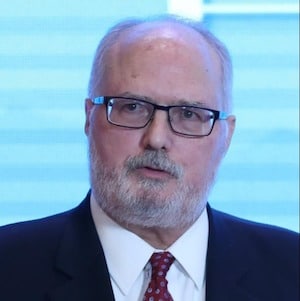
Preston Rutledge
Founder & Principal, Rutledge Policy Group LLC
Preston Rutledge is the Founder and Principal of Rutledge Policy Group LLC, a government affairs consultancy focused on tax, retirement savings, and employee benefits policy. Prior to forming Rutledge Policy Group, Mr. Rutledge was the Assistant Secretary of Labor for the Employee Benefits Security Administration (EBSA). Mr. Rutledge, as the nation’s top pension regulator, oversaw an agency of over 800 employee benefits professionals in Washington, D.C., and 13 regional offices throughout the United States. Mr. Rutledge led the drafting and publication of guidance to implement retirement, health, and workplace benefits policies, including rules governing Association Retirement Plans, electronic disclosure, 401(k) auto-portability, 401(k) private equity investment, the fiduciary advice rule and exemption, ESG, proxy voting, Health Reimbursement Arrangements, medical price transparency, surprise billing, and Association Health Plans. He also led EBSA’s response to the COVID-19 pandemic.
In international affairs, Mr. Rutledge led the U.S Delegation on private pension policy at the Organization for Economic Co-operation and Development (OECD) in Paris, France; was a member of the OECD Insurance and Private Pensions Committee; served as Chair of the OECD Working Party on Private Pensions; and worked with the International Organization of Pension Supervisors (IOPS). He also led oversight of the Federal Thrift Savings Plan, the world’s largest defined contribution plan, and represented the Secretary of Labor on the Boards of the Pension Benefit Guaranty Corporation (PBGC) and the Social Security and Medicare Trust Funds.
Before joining the Department of Labor, he served as Senior Tax and Benefits Counsel for Chairman Orrin G. Hatch (R-UT) on the Majority Tax Staff of the U.S. Senate Finance Committee, where his responsibilities included employee benefits, retirement, health and Affordable Care Act taxation, life insurance corporate and product taxation, Social Security, Medicare and Unemployment Insurance payroll taxes, executive compensation, worker classification, charities and tax-exempt organizations, and the DOL fiduciary rule. He drafted the Chairman’s primary retirement initiatives: the Secure Annuities for Employee (SAFE) Retirement Act and the Retirement Enhancement and Savings Act (RESA). RESA became the SECURE Act, the most sweeping reform of retirement savings policy in over a decade.
Prior to joining the Finance Committee, Mr. Rutledge served as a Senior Tax Law Specialist on the Headquarters Staff of the Tax Exempt and Government Entities Division of the Internal Revenue Service, and as a Senior Technical Reviewer in the Qualified Pension Plans Branch of the IRS Office of Chief Counsel. Mr. Rutledge also served as a law clerk on the United States Court of Appeals for the Fifth Circuit and worked in private law practice as an Employee Benefits Counselor and ERISA Litigator. Mr. Rutledge earned a B.S. in business, cum laude, from the University of Idaho; a J.D., with high honors, from the George Washington University School of Law, where he was a member of the Law Review; and an L.L.M. – taxation, with distinction, including a certificate in employee benefits law, from the Georgetown University Law Center. Prior to law school, Mr. Rutledge was a Naval Officer and served on the U.S.S. Bagley (FF-1069).

Aron Szapiro
Head of Policy Research, Morningstar
Aron Szapiro is Head of Policy Research for Morningstar. Szapiro is responsible for developing research reports on policy matters, coordinating official responses to regulatory proposals, and providing investor-focused comments on policy issues to clients and the press. He also chairs Morningstar’s Public Policy Council. His research has been covered in The New York Times, The Wall Street Journal, The Washington Post, The Journal of Retirement, and on National Public Radio.
Before assuming his current role in July 2016, he served as Morningstar’s Associate Director of Policy Research and as policy and finance expert at HelloWallet, a former subsidiary of Morningstar. Previously, he was a Senior Analyst at the U.S. Government Accountability Office (GAO), specializing in retirement security issues and pension plan policy. He also worked at the New Jersey General Assembly Majority Office.
Szapiro holds a bachelor’s degree in history from Grinnell College and a master’s in public policy from Johns Hopkins University.

Tamiko Toland
Head of Annuity Research, CANNEX
Tamiko Toland is Head of Annuity Research for Toronto-based CANNEX. Her focus is the individual and institutional U.S. annuity market. CANNEX has long been known as the leading provider of income annuity pricing and now serves the entire scope of annuity products, including the evaluation of annuities with income guarantees. She is a thought leader with more than 15 years of experience tracking trends and key issues on retirement income, synthesizing commentary and analysis for broad audiences and specific clients. She is known for her dynamic presentations with a unique perspective on the industry and the forces that are shaping it.
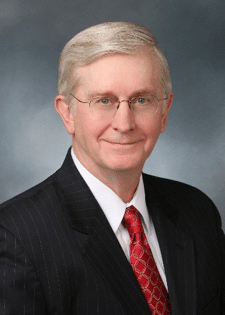
Jack VanDerhei, Ph.D.
Research Director, Employee Benefit Research Institute (EBRI)
Jack VanDerhei is Research Director at the Employee Benefit Research Institute (EBRI) and director of the EBRI Retirement Security Research Center.
Jack has written more than 200 publications devoted to employee benefits and insurance, but his major areas of research focus on the financial aspects of private defined benefit and defined contribution retirement plans. He is currently analyzing a database with annual observations of more than 27 million 401(k) participants from more than 110,000 plans. He developed a national retirement income adequacy simulation model for EBRI in the late 1990s that has been used for more than 40 studies. He received his B.B.A. and M.B.A. from the University of Wisconsin-Madison and his M.A. and Ph.D. from the Wharton School of the University of Pennsylvania.

Alice Henriques Volz
Principal Economist, Federal Reserve Board
Alice Henriques Volz is a Principal Economist at the Federal Reserve Board. At the Board, Alice works in the Microeconomic Surveys section, which oversees the Survey of Consumer Finances. Her research interests focus on inequality and retirement. Current research projects include retirement preparation across cohorts and the wealth distribution and measuring and understanding trends in wealth and income inequality. She received her Ph.D. in economics from Columbia University and a B.A. from the University of California, Berkeley.
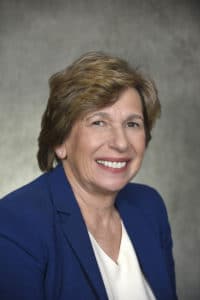
Randi Weingarten
President, AFL-CIO
Randi Weingarten is President of the 1.7 million-member American Federation of Teachers, AFL-CIO, which represents teachers; paraprofessionals and school-related personnel; higher education faculty and staff; nurses and other healthcare professionals; local, state and federal government employees; and early childhood educators. The AFT champions fairness; democracy; economic opportunity; and high-quality public education, healthcare, and public services for students, their families, and communities. The AFT and its members advance these principles through community engagement, organizing, collective bargaining, and political activism, and especially through members’ work.
Prior to her election as AFT president in 2008, Weingarten served for 12 years as President of the United Federation of Teachers, AFT Local 2, representing approximately 200,000 educators in the New York City public school system, as well as home child care providers and other workers in health, law. and education. In 2013, The New York Observer named Weingarten one of the most influential New Yorkers of the past 25 years. Washington Life magazine included Weingarten on its 2013 Power 100 list of influential leaders.
Under Weingarten’s leadership, the AFT continues to grow and expand its voice as a union of professionals. In 2013, the National Federation of Nurses, representing 34,000 nurses, voted to affiliate, making the AFT the second-largest union of nurses in the country. The AFT has also expanded its higher education and public employee membership as well as building strength in the South and Southwest.
For 10 years, while President of the UFT, Weingarten chaired New York City’s Municipal Labor Committee, an umbrella organization for the city’s 100-plus public sector unions, including those representing higher education and other public service employees. As chair of the MLC, she coordinated labor negotiations and bargaining for benefits on behalf of the MLC unions’ 365,000 members.
From 1986 to 1998, Weingarten served as Counsel to UFT president Sandra Feldman, taking a lead role in contract negotiations and enforcement, and in lawsuits in which the union fought for adequate school funding and building conditions. A teacher of history at Clara Barton High School in Brooklyn’s Crown Heights neighborhood from 1991 to 1997, Weingarten helped her students win several state and national awards debating constitutional issues.
Elected as the local union’s Assistant Secretary in 1995 and as Treasurer two years later, she became UFT President after Feldman became president of the AFT. Weingarten was elected to her first full term as UFT president in 1998 and was re-elected three times.
Weingarten holds degrees from Cornell University’s School of Industrial and Labor Relations and the Cardozo School of Law. She worked as a lawyer for the Wall Street firm of Stroock & Stroock & Lavan from 1983 to 1986. She is an active member of the Democratic National Committee and numerous professional, civic and philanthropic organizations. Born in 1957 and raised in Rockland County, N.Y., Weingarten now resides on Long Island and in Washington, D.C.
